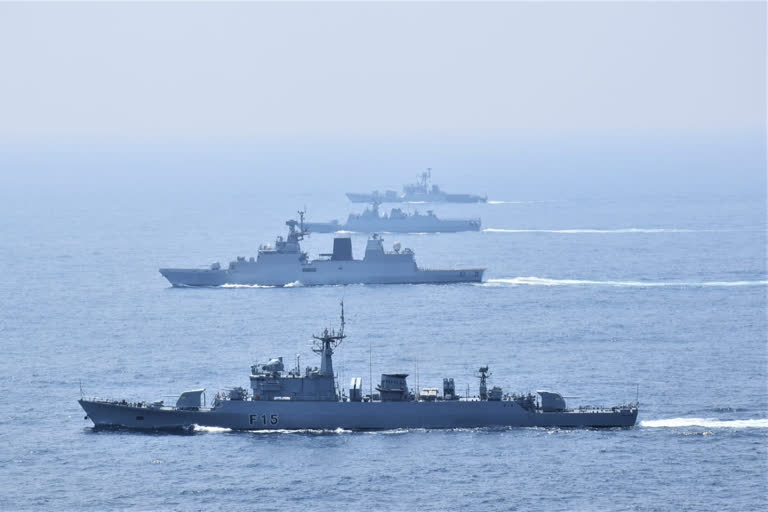Hyderabad: India, which was subjected to absurd sanctions in the wake of the Pokhran nuclear test, was soon able to move forward slowly with strategic partnership agreements with all the top countries, thanks to the mature political diplomacy of Vajpayee. His remark that getting closer to one country does not mean moving away from another sounds the true spirit of non-alignment. Within two decades of the new millennium, the geopolitical climate has changed significantly. In countries that have been successful in helping the victims of the 2004 Indian Ocean tsunami, the idea of systematizing that cooperation has sprouted.
The then Prime Minister of Japan Shinzo Abe's aspiration that the Hindu and Pacific ocean coastal countries with the 'vision' of freedom and prosperity should form a 'team' was highlighted in the 2006 joint statement of Delhi and Tokyo. However, during the preliminary consultation phase of 2007 itself, the attempt was thwarted by Beijing with queries and objections. After so many years, now, not only the US, Japan, India and Australia's Quadrilateral Security Dialogue (QSD, also known as the QUAD) has been formed but also the stage is set for the Malabar naval manoeuvres of the four countries in a fortnight.
The Trump administration, which has dubbed the Asia-Pacific region as Indo-Pacific, in its 2017 National Security Strategy Document has cracked down on Chinese aggressive attitude. While Beijing has criticized Washington for preparing to form an 'Asian NATO' alliance, China's high handed behaviour has prompted the latest cooperative activism between India and Australia. While China, the largest trading partner of the 'QUAD' member states, has opened up the latest geopolitical rivalry with the Cold War ideology, the United States hopes to build a quad-alliance to counter Beijing's aggression. India must be careful not to become a scapegoat in this mesh of strategies.
Also read: Repair mode on for Indo-Nepal ties
India is the only member of the QUAD that shares a wide geographical border with China. Although Chinese Premier Wen Jiabao had said that India-China relations have been cordial for the past 2,200 years, Beijing has been involving in border encroachments for some months creating war-like situations. Although India unequivocally rejected the border proposed by China in 1959, Beijing has been insisting that India is bound to abide by its proposal, and is adamantly opposing all efforts for the peace process. Beijing, which has historically had a monopoly over the South China Sea, and has been creating artificial islands to expand military bases there, had a bitter experience in 2016 at the International Tribunal.
China's arrogant attitude to not recognize the verdict of the World Tribunal is disturbing all the countries concerned. President Xi Jinping's directives to the People's Liberation Army to prepare for war are also raising tensions. India is set to move closer to the US militarily with the Basic Exchange and Co-operation Agreement (BECA) later this month, following key agreements in 2002, 2016 and 2018. General Rawat says the 'QUAD' could be a good arrangement for free navigation, not just the Indian Ocean, but for trade on the seas without the fear of monopolies. In view of the fact that hegemonic tendencies are the cause of wars of all sorts - only when the 'QUAD' is expanded as a multilateral platform, rather than an alliance, would the world escape from the shadows of the Cold War.



